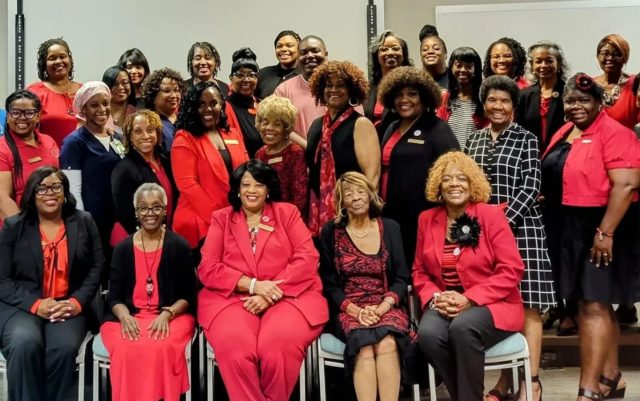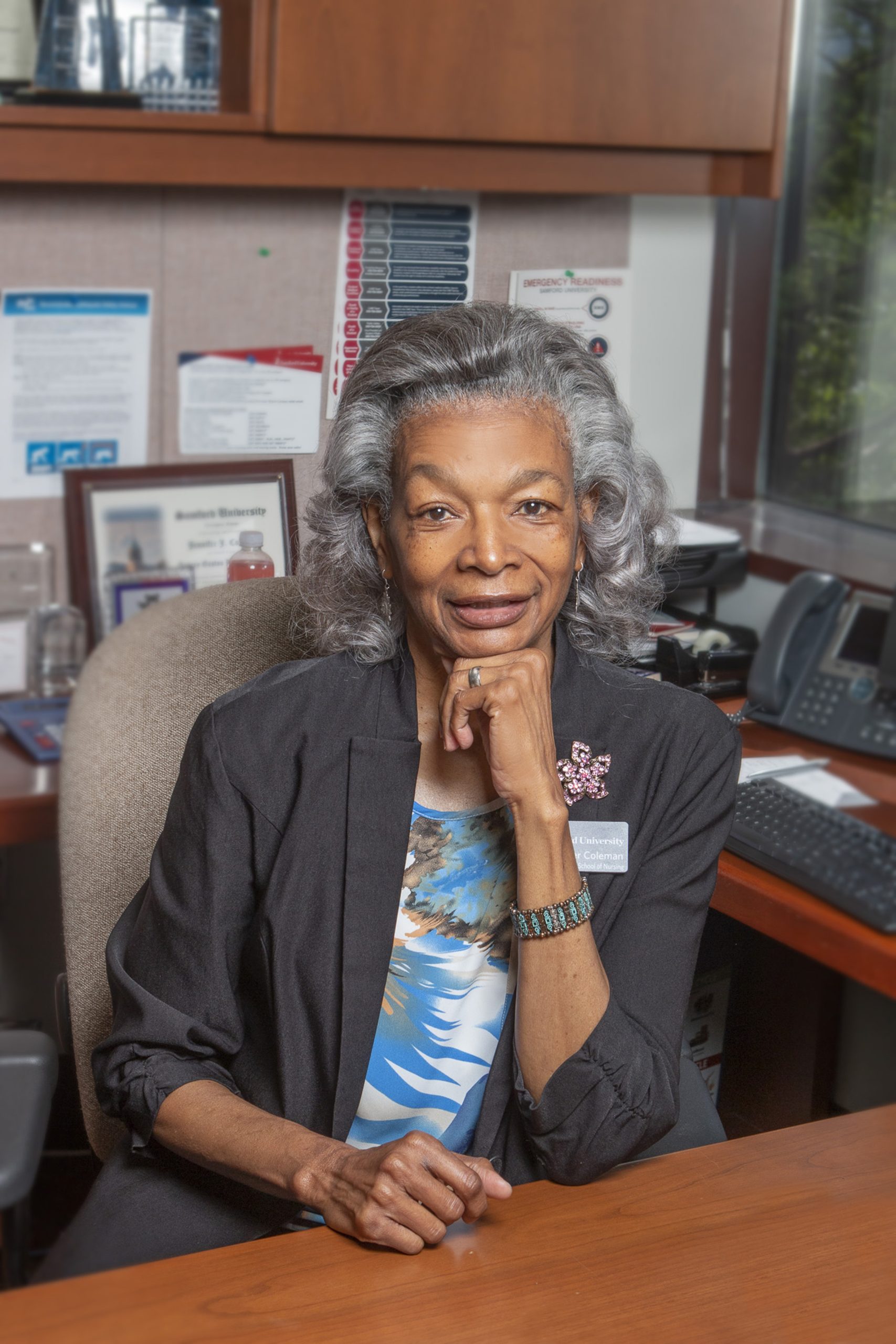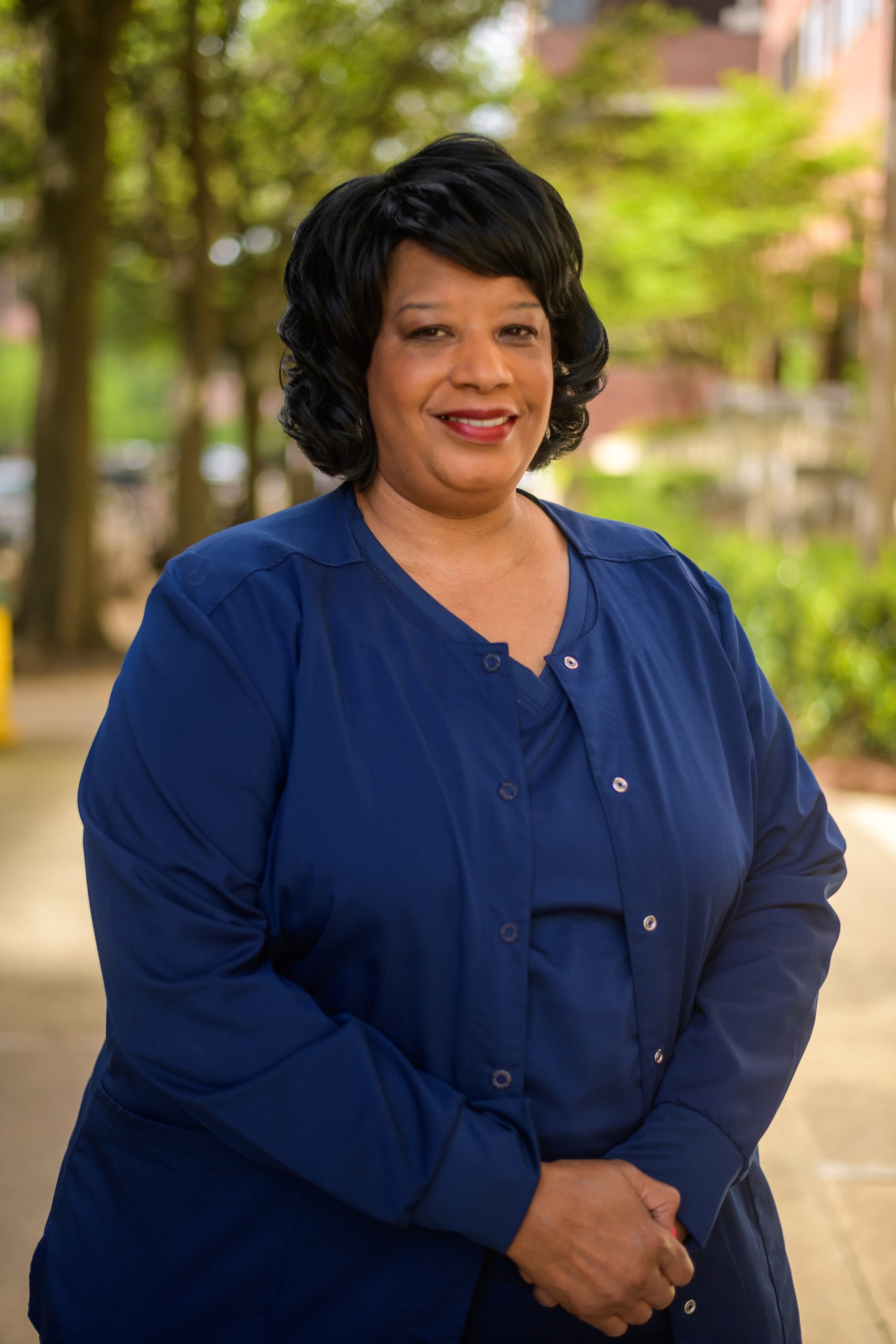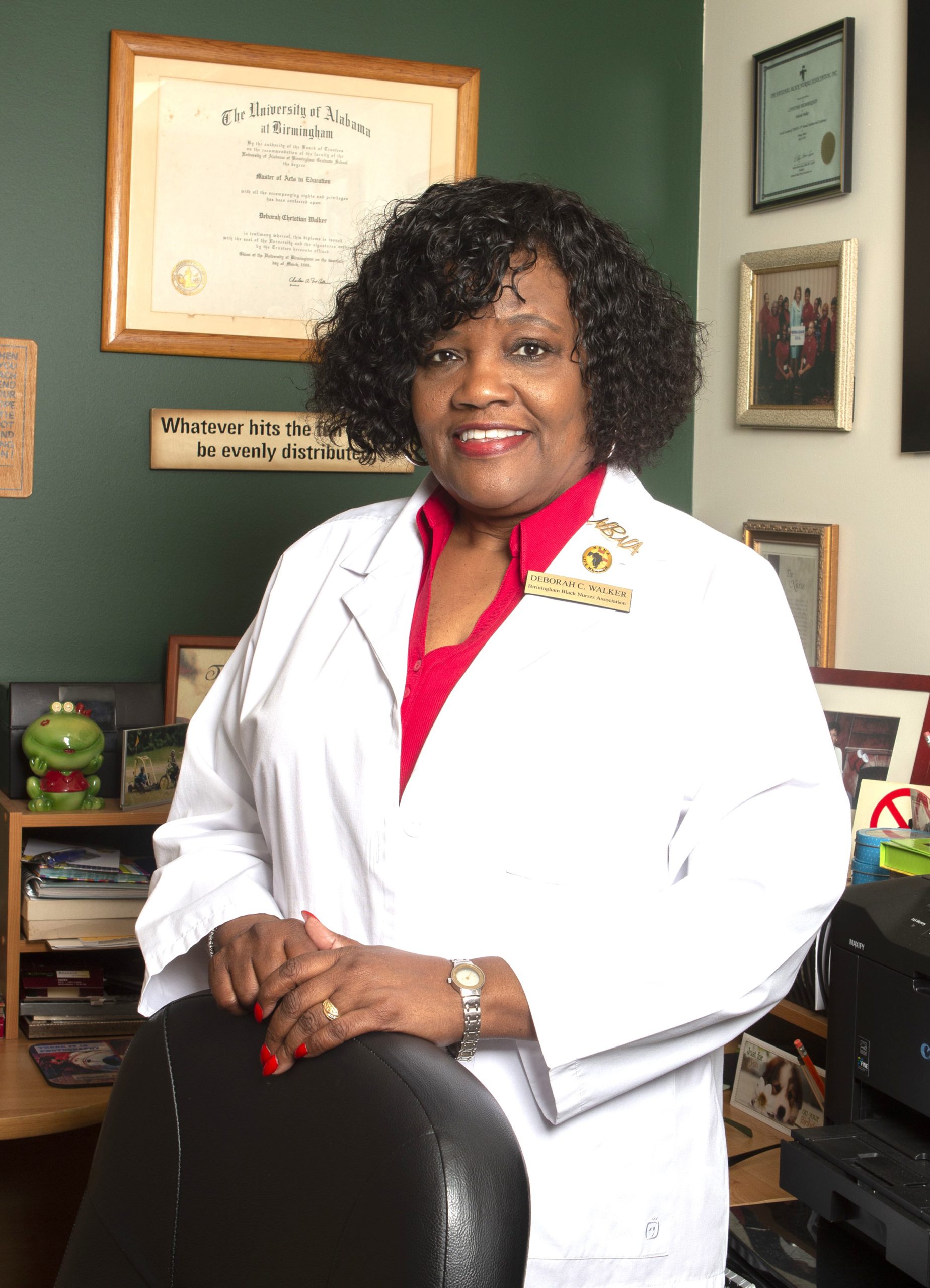
Keisa Sharpe-Jefferson | For The Birmingham Times
Given recent staffing shortages that have caused challenges in recruiting and retaining talented nurses, the Birmingham Black Nurses Association (BBNA), is doing what it can to advocate for quality health care and attract more to the profession.

“The best way (for this profession to thrive) is for current nurses to act as role models,” said Dr. Jennifer Coleman, a Nursing Professor at the Moffett & Sanders School of Nursing at Samford University and a member of the BBNA. “Increasing diversity in nursing (gender, race, ethnicity, etc.) is critical to ensure that the nursing profession is representative of the general population in our country.”
One strategy to address the nursing shortage could be to introduce the career to students at an early age, said Coleman, whose first job was as a Registered Nurse at UAB Hospital in the medical intensive care unit in 1977.
“We should continue to provide nursing as a career option to young elementary and high school students, as well as provide financial support to students in nursing school,” she said.
The BBNA, with 250 nurses and nursing students in the metro area, was founded in October 1989 and received its charter as an official chapter of the National Black Nurses Association (NBNA) in 1990. BBNA was incorporated in 1992.
The group is increasing diversity with their mentorship program by providing “educational counseling, emotional and financial support and professional socialization opportunities,” said Coleman, who also served as BBNA president from 2013-2015.
BBNA’s goals include advocating for health and wellness, developing and maintaining community partnerships by participating in community health fairs, supporting health initiatives, and participating in service projects.

Members of the BBNA are not immune to the shortfalls. Bessemer native Patricia Curry and current BBNA President said the nursing shortage has caused her “to work longer hours and take on a heavier workload.”
However, her organization helps to remind others that “those who pursue the field can make a great living (working or teaching)” and that “nurses are the wheels that keep health care turning,” she said.
BBNA actively recruits nurses “by talking about the advantages of being a part of a professional nursing organization which includes certification, networking and continuing education opportunities,” said Curry, who was elected in 2023 and is serving a two-year term.
She currently works as a Registered Nurse Therapy Coordinator in the Department of Molecular Imaging and Therapeutics at UAB, where she coordinates radiation treatment for patients with different types of cancer.
Curry has a degree in Nuclear Medicine Technology from the School of Health Professions at UAB and holds a Bachelor of Science degree from the UAB School of Nursing, graduating in 2010.
She worked in radiology for 20 years in various hospitals (including Simon Williamson Clinic, UAB Hospital and Cardiovascular Associates) before working in the nursing profession for 14 years and counting at Baptist Medical Center — Princeton and UAB Hospital – Department of Nuclear Medicine, which is where she currently works.
Curry, who began her career in nursing as a Registered Nurse at Baptist Medical Center – Princeton on the Cardiology-Medical Surgical Unit from 2010 – 2016, says the need for nurses has been dire for years, and skyrocketed during the pandemic, beginning in 2020.
“With the growing shortage, it’s projected that there will be over 19,000 job openings each year (in nursing) in the United States until the year 2030,” she said.
Recruiting Diverse Talent

Deborah Walker, a Fairfield native and one of the founders of BBNA, still serves as President Emerita, said one of the greatest challenges facing the nursing career path lies in “the definition of the entry level” into the profession.
“The nursing field has several preparation steps for entry into the career. You can have a diploma, an associate’s degree or a bachelor’s degree. And at the end of your formal education, everyone takes the same exam for licensure,” she said.
Walker has roots that run deep in the field. Although retired since 2015, she’s worked in nursing for 47 years and counting.
Her first paying job in the field was at Baptist Medical Center Montclair as a charge nurse, which was the supervisory position of the work shift. She retired from UAB as nurse manager over physical rehabilitation at UAB’s Spain Rehabilitation Center.
“Some of the major changes I have seen is that nurses have gained a voice in a number of activities affecting health care, which is in stark contrast to when I began working in the profession,” said Walker.
She says her career “began as a volunteer candy striper and we were only allowed to work with Black patients,” and her duties involved “assisting with getting water, passing out magazines or delivering mail.” Candy stripers were basically teenagers who assisted patients on a volunteer basis, she said.
As Founding President, Walker served BBNA at its start in 1989, through 1990 because of her service, she is also lifetime member of the National Black Nurses Association.
After her up-close look at the profession as a volunteer, she worked as a nursing assistant at Estes Nursing Home in Fairfield prior to going to college at Tuskegee Institute, where she received her Bachelor of Nursing Sciences in 1977.
Walker received her Master’s of Arts in Education from UAB in 1986 and said one of the biggest opportunities with BBNA is to share the history of Black nurses.
“For instance, many nurses are not aware that the first Black Registered Nurse in Alabama was Pauline Bray Fletcher, who founded Camp Fletcher in 1926 for inner city Black children to explore nature,” she said.
Camp Fletcher is still in existence today and serves diverse families who want to experience the outdoors in a safe environment through activities like after school camp, summer day camp and spring break camp.
Nursing Excellence and Mentorship
Coleman, nursing professor at Samford, was recently inducted into the Alabama Nursing Hall Fame in November 2023. She sees her role in education as valuable for future nurses, reminding them to “exhibit honesty, integrity and respect for each person’s unique perspective, values and background,” she said.
There was no doubt which profession she would choose, Coleman said. “From the time I was a young child, I have always known that I was destined to be a nurse. There is no other career I have ever considered,” she said.
“After (Eutaw High School in Eutaw, AL), I went to college with the goal of becoming a registered nurse. I earned my Bachelor of Science in Nursing (in 1976 from [UAB],” said Coleman, who also holds a Master of Science in Nursing Education from Samford University and a Doctor of Philosophy in Nursing Ethics from the University of Southern Mississippi in Hattiesburg.
She joined BBNA in 2002, saying “I wanted to network with other professional Black nurses and I wanted to work in our communities educating residents and assisting them with managing their health.”
For more on the nursing field or BBNA, visit https://birminghambna.org/




